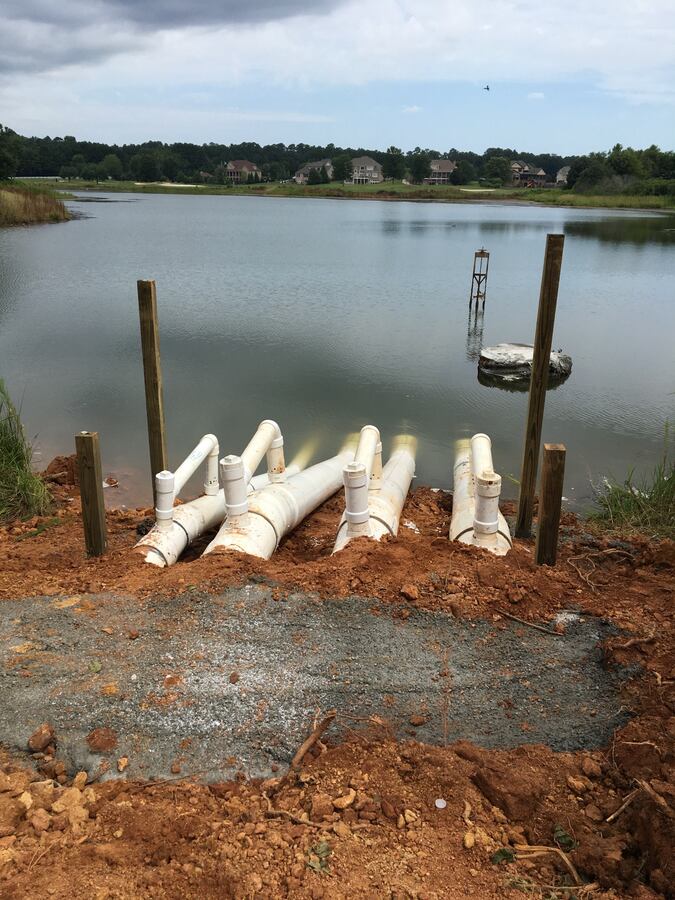
Pond pumps are a lifeline for maintaining healthy water bodies, ensuring adequate aeration, and supporting a balanced aquatic ecosystem. Like all mechanical devices, however, pond pumps are susceptible to wear and tear as well as occasional malfunctions. For property owners, understanding how to troubleshoot and address these issues can save time, money, and the health of their ponds.
In this brief article brought to you by Aquatic Restoration, we provide practical advice to help you diagnose and fix common problems with pond pumps. If you’d rather have uniformed pond maintenance professionals take care of the problem, or if you are looking for quality and affordable pond and lake maintenance services, then call Aquatic Restoration – a reputable business with over 35 years of industry experience.
When your pond pump stops running altogether, it can be a cause for concern. There are three common causes for a pump that won’t run: power issues, damaged cord, or a clogged impeller:
Ensure the pump is properly plugged in and receiving power. Inspect and replace damaged cords. And safely clean the impeller to ensure it spins freely.
Reduced water flow can lead to insufficient aeration and circulation, which is negative for the health of your pond. Understanding the causes can help you restore optimal performance:

Clean the intake and outflow areas regularly to remove any blockages. While you’re at it, inspect and replace a worn impeller if necessary. Finally, you should get in the habit of checking hoses for kinks or blockages
Sometimes, a pond pump may run, but no water flows. Well, there’s a tricky situation. This can be puzzling and may indicate issues within the pump or its connections.
At Aquatic Restoration, we will typically start by ensuring that hoses are truly connected and not leaking, and we’ll also check to see if the seals within the pump are damaged or worn. We also test for airlock, or air trapped in the pump or hoses.
Unusual noises coming from your pond pump can be alarming. These sounds often indicate mechanical issues that need immediate attention to prevent further damage.
There are many potential causes. Small stones or debris can cause rattling or grinding noises, bearings within the pump can wear out, causing noise, or the pump may be vibrating against a hard surface.
A clunky and noisy pump is cause for concern, and we recommend having an expert investigate before you turn that thing back on.
While many issues can be resolved with routine maintenance and troubleshooting, some problems may require professional intervention. If you encounter persistent issues, unusual noises, or signs of electrical faults, it's best to consult a professional to avoid further damage or safety hazards.
Aquatic Restoration is an established business with decades of industry experience in lake and retention pond maintenance. Whether you are considering a large-scale plan or need urgent assistance, the uniformed professionals at Aquatic Restoration are here to take your call or message today.
Lake management is an integral part of keeping your lake in peak condition. It involves activities such as lake…
There are many incredible benefits that come with restoring natural lake depth. Not only does it improve water quality…
When it comes to maintaining healthy water bodies, there are two primary methods that are often used: dredging and pond…
There’s peace of mind in knowing you have a reliable detention pond on your property. These man-made ponds temporarily hold…
Owning waterfront property is a dream come true for many people. Everything from the stunning views to a relaxing lifestyle…